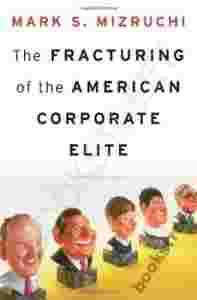THE FRACTURING OF THE AMERICAN CORPORATE ELITE

Aukcja w czasie sprawdzania nie była zakończona.
Cena kup teraz: 220.50 zł
Użytkownik bookstreet
numer aukcji: 4178147560
Miejscowość Kalisz
Zostało sztuk: 10
Wyświetleń: 3
Koniec: 23-05-2014, 2:42
Dodatkowe informacje:
Stan: Nowy
Okładka: twarda
Kondycja: bez śladów używania
